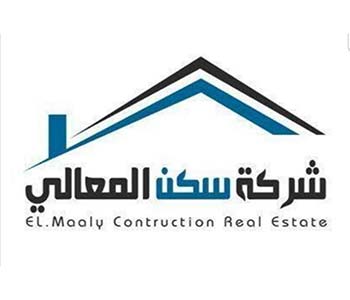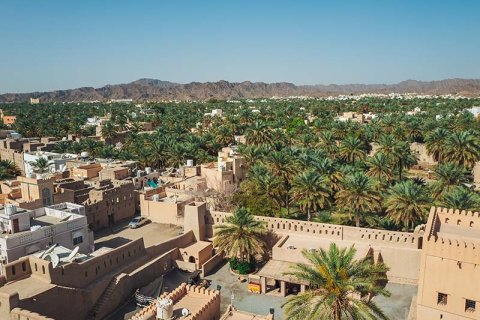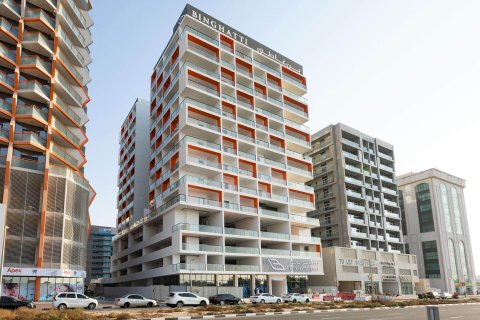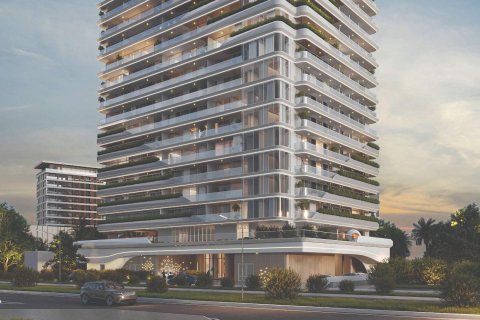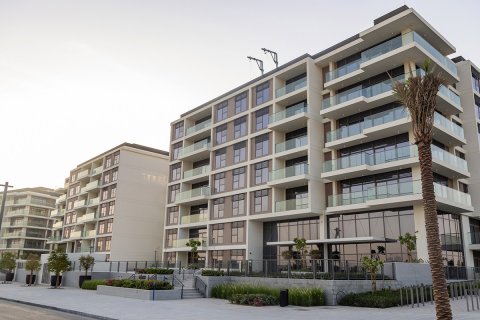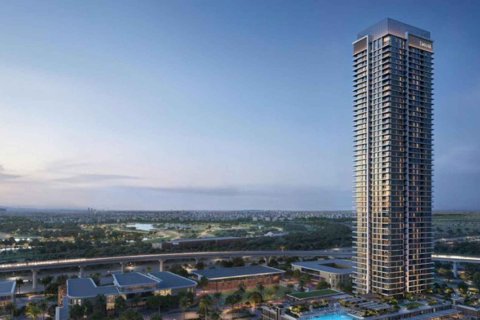
The lifestyle in Saudi Arabia, a Muslim country, differs significantly from that in Europe. However, the state is increasingly attracting foreigners who plan to relocate. In recent years, the kingdom has opened up to foreign citizens for tourism, employment, business, investment, and real estate opportunities. To attract skilled workers and investors, the government has launched various residence permit (RPL) and permanent residence (PR) programs. They answer the question of how can I move to Saudi Arabia and are aimed at attracting highly skilled professionals and wealthy individuals. The country actively invests in infrastructure development, which appeals to international companies and startups. Cultural and social changes, including the expansion of women's rights and the growth of the entertainment industry, have increased the region's popularity among foreigners. Let's take a look at what opportunities are available to those considering a move, is it expensive to live in Saudi Arabia or not and what points to consider.
Content
How to get a residence permit in Saudi Arabia
Several legal ways for foreigners to move to the kingdom include:
- One of the most popular options is to obtain a working iqama, a residence permit that is granted to qualified and in-demand professionals at the invitation of Arab employers. Many Saudi universities seek to attract experienced teachers, while scientists, IT specialists, oil and gas professionals, lawyers, doctors, and other professionals are also in demand. Employers often prioritise medical insurance, accommodation, and transportation costs. Top specialists may be offered a favorable social package, including payment for children's education and reimbursement of relocation expenses for the whole family. However, the state has quotas for the foreign labor force, and certain professions and industries are not available to foreign employees.
- Another way to move to the kingdom is to enroll in local universities. International students may pay tuition fees, but many can rely on scholarships or grants to offset living expenses, including food, study materials, and even the cost of tickets home for vacations. Many institutions provide information in English, which makes learning easier. However, a significant number of universities remain closed to girls.
- Family reunification is suitable for children of citizens of the state and women whose spouses are citizens of the Kingdom or foreign nationals working in the country. In the latter case, they must meet several Only representatives of certain professions can apply for a residence permit for family members, including spouses, unmarried daughters of any age, and sons under 18. This list is extensive but regularly updated, as some professions are reserved exclusively for Saudi nationals. For 2025, it includes about 200 professions, such as engineers, accountants, auditors, financial managers, teachers, doctors, programmers and others. There are also minimum wage requirements for such workers.
- Investors can obtain a temporary residence permit SP2 by investing 100,000 rials, which is approximately USD 27,000. This residence permit is issued for one year. Later, it can be extended an unlimited number of times by paying the specified amount again every year. If, after a period of residence in the country, investors decide to stay permanently, they can switch from a temporary residence permit (SP2) to an indefinite residence permit (SP1) by making an additional investment of the required amount.
What you need to move to live and work in Saudi Arabia
First, you need to obtain a work visa, the main document for legal employment. This will require an invitation from a local employer that is registered with the Ministry of Labor and Social Development. The company acts as a sponsor, which is a prerequisite for issuing the visa.
The next step is to prepare the required documents for moving to Saudi Arabia, including a valid passport, medical certificates confirming the absence of certain diseases, and a criminal record certificate. Proof of qualifications and work experience may also be required.
Foreigners should take into account the country's cultural and religious background. Knowledge of Arabic will be advantageous, although English is often spoken in large cities and international companies. Foreigners are expected to observe local rules and traditions, including dress codes and behavioral norms.
Documents for obtaining a residence permit in Saudi Arabia
The documents for immigration to Saudi Arabia vary depending on the purpose of the move: for students, investors, skilled professionals and their families.
Students, for example, need to provide an invitation from an educational institution, investors need documents proving their financial independence and business activity, and family members need proof of marriage and children. Nevertheless, the standard documents include:
- a passport and a copy of it;
- a set of passport-type photographs;
- a certificate of no criminal record;
- certificates of absence of HIV, hepatitis and other potentially dangerous infections;
- medical insurance for the applicant and other family members (the employer usually arranges insurance for employees on invitation).
Costs of applying for a residence permit and moving to Saudi Arabia
The primary costs are associated with obtaining a visa and residence permit. For example, a work visa (Iqama) costs about 650 Saudi riyals (about USD 175) per year. The employer usually covers these costs, including taxes and fees.
Medical examinations are also mandatory, and the cost depends on the extent of the procedures required and the prices of the particular clinic. Translation and certification of documents such as birth certificates and diplomas can cost between USD 100 and USD 300.
How to get permanent residence in Saudi Arabia for investment
Foreigners can apply for a temporary or permanent residence permit depending on the investment amount. An indefinite investment residence permit (SP1) requires an investment of 800,000 Saudi riyals (just over USD 213,000) in the country's economy.
This residence permit offers immigrants many advantages, such as:
- the status of a tax resident of the state;
- the ability to transport a spouse and children under 21 years of age;
- registration of visitor visas for close relatives and service personnel;
- ownership of residential or commercial property in Saudi Arabia;
- running a private business without the obligation to create jobs for Saudis;
- the acquisition of assets of local companies.
There are also no residency requirements to maintain residency status.
A language proficiency test is required to obtain permanent residency. Its questions cover specific aspects of life in Saudi Arabia, including religion, laws, traditions and everyday life in Muslim society. The primary purpose of the test is to confirm the applicant's understanding and respect for the country's cultural and religious characteristics.
Which city to choose to move to Saudi Arabia
Riyadh attracts many foreigners due to its status as a modern metropolis and its reputation as a “city of the future.” The country's capital impresses with modern architectural masterpieces such as the Kingdom Tower and Al Faisaliah Tower. The city boasts a well-developed infrastructure featuring high-quality educational and medical facilities. Riyadh is also rich in cultural attractions, including the National Museum and traditional markets such as Souq Al Zal. The city actively develops and offers new business and investment opportunities, making it attractive to professionals and entrepreneurs.
Jeddah, while vying with the capital for the title of the business center, is a trendy resort with a milder climate, making it popular with Europeans. It is a major port on the Red Sea and is the state's economic hub. The city is famous for its waterfront and modern shopping centers. The UNESCO-listed Al Balad historical cluster provides a unique glimpse into traditional architecture. Jeddah is also renowned for its cultural events and exhibitions, including the annual Jeddah Festival. The city serves as a gateway for pilgrims traveling to Mecca. It offers a well-developed transportation infrastructure, including an international airport. Relocation to Mecca is only possible for those practising Islam. This city is closed to those of other faiths.
Medina, the second holy city after Mecca, has recently become accessible to members of other religions, except the Prophet's Mosque.
Medina is also home to one of the world's top Islamic universities. It accepts international Muslim students (male only) and offers scholarships as well as Arabic language instruction. Therefore, many students are interested in moving to this city to study religious sciences.
Pros and cons of moving to Saudi Arabia permanently
One of the main pros of moving to Saudi Arabia is the high salary level. The country's developing economy offers excellent job opportunities in various industries, including oil and gas, construction, finance, and information technology.
Another significant advantage is the absence of personal income taxation, making the state an attractive location for those seeking financial gain.
Foreign citizens can also experience cultural diversity and unique Arab traditions. The country offers a rich historical heritage, including ancient monuments and traditional festivals.
The state is renowned for its high living standards and excellent healthcare. Additionally, the kingdom has a low crime rate, making it an attractive destination for those relocating. An important factor is the stability of the political system, strict law enforcement and respect for the older people.
The locals are known for their hospitality, which makes adaptation easier for newcomers. Muslims feel exceptionally comfortable due to religious traditions, with which the majority of the population agrees. However, others must get used to local laws, such as restrictions during Ramadan, the prohibition of alcoholic beverages, and morality standards enforced by the religious police.
The peculiarities of life in Saudi Arabia also include the segregation of the social sphere by gender. Numerous establishments, such as restaurants and parking lots, have separate areas for men and women. Some public places have family areas where men and women can be together. In recent years, many rules have become more lenient. For example, women can now drive and wear headscarves instead of the classic niqab. Foreign women can also opt for modest clothing instead of the abaya.
If you ask, can you work in Saudi Arabia as a woman, the answer is yes. However, it is more difficult for them to find work as they face certain restrictions. Employment requires the consent of a husband or guardian. Companies need to comply with strict norms when hiring women, and this causes additional difficulties. As a result, many employers prefer to hire only men.
The country's climate is predominantly hot and dry throughout the year, making adaptation to weather conditions a significant challenge. Summers can be particularly sweltering, with temperatures exceeding 40 degrees, which complicates work and active outdoor recreation, especially during the daytime.
Cost of living in Saudi Arabia
According to the Numbeo index, the prices in the country in 2025 for several essential areas are as follows:
- A family of 4 needs about USD 2,900 to meet household needs;
- The rent for a 1-bedroom apartment is about USD 500;
- Utilities for an apartment of more than 85 m² cost USD 111, excluding cell phone and internet charges;
- The cost of a monthly pass for public transportation is USD 35;
- The price of a liter of gasoline is USD 62;
- The fee for a month of education for a child in school or kindergarten is about USD 1,290;
- Dinner for two at a restaurant costs, on average, USD 40;
- A food basket, including bread and milk, costs about USD 8.
Popular real estate types in Saudi Arabia for relocation
The kingdom offers a diverse range of real estate options that appeal to both locals and expats planning to relocate. Villas in Saudi Arabia offer spacious areas and are often situated in premium, gated developments that provide security and amenities such as swimming pools and fitness centers. These detached communities are often situated in larger cities, particularly Riyadh and Jeddah, and offer high levels of security and privacy.
Townhouses are gaining popularity due to their combination of comfort and affordability. They offer more space than apartments but remain a more economical option than villas.
Apartments in Saudi Arabia are also in demand, especially in central city areas with access to offices, shopping centers and restaurants. Modern apartment complexes offer a variety of amenities, including parking lots, gyms and recreational areas.
Middle East is a licensed agent with years of experience specialising in investment residency in the Middle East and the Caribbean. Schedule a consultation with our experts today.












